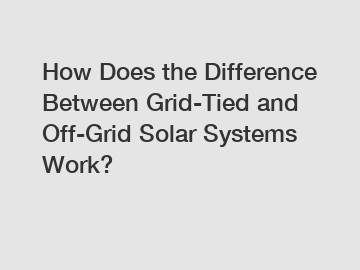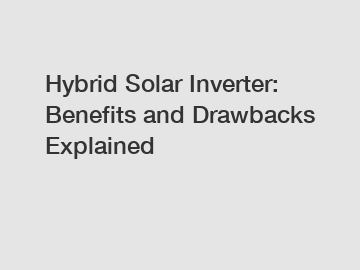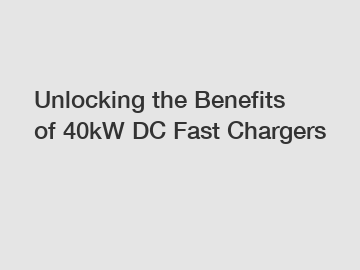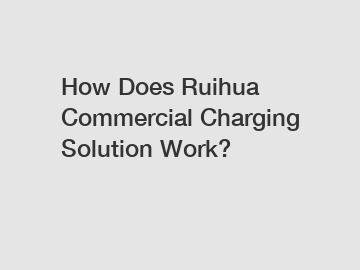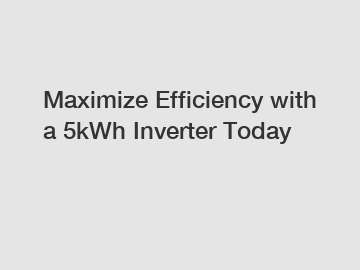Why Flexible Solar Panels Are the Future of Renewable Energy
Why Flexible Solar Panels Are the Future of Renewable Energy?
- What are flexible solar panels?
Flexible solar panels are lightweight and thin photovoltaic cells that can be bent and shaped to fit various surfaces. Unlike traditional solar panels, they are made using materials that allow for greater flexibility, such as organic photovoltaics or thin-film technology.
- What are the benefits of flexible solar panels?
Flexible solar panels offer numerous advantages. They are lightweight and easy to install, making them suitable for a variety of applications, including rooftops, vehicles, and portable devices. Their flexibility allows them to be integrated into surfaces where traditional panels might not fit, maximizing solar energy capture in different environments. Additionally, they can be produced using less energy and raw materials, leading to cost efficiency and environmental benefits.
- How do flexible solar panels work?
Flexible solar panels work by converting sunlight into electricity using photovoltaic cells. When sunlight hits these cells, it excites electrons and generates an electric current. This current can then be harnessed and used to power electrical devices or charge batteries. The efficiency of these panels has improved significantly, making them a viable renewable energy source.
- What are the potential applications for flexible solar panels?
Flexible solar panels can be applied in various fields. They are ideal for use in wearable technology, solar backpacks, and even solar roads. Their ability to conform to different surfaces allows for innovative uses, such as solar canopies at parks, RVs, and boats. In addition, they can be used for building-integrated photovoltaics (BIPV), integrating seamlessly into building designs.
Recommended article:
Is BIPV the Future of Urban Sustainability? - What challenges do flexible solar panels face?
What is BIPV? Unlocking Solar Power's Future for Your Home
Top Flexible Solar Panels Exporters You Should Know
How Does the Best Smart Home Device Work?
Unlocking DC Charging: How It Powers Your EV Efficiently
Ultimate Guide to 3 Phase Solar Inverter Wiring
3 Phase Solar Inverter Wiring Diagram: Key Differences ExplainedDespite their numerous benefits, flexible solar panels face several challenges. They often have lower efficiency rates compared to traditional solar panels, which can limit their energy output. Durability and weather resistance are also concerns, as some materials may not withstand harsh environmental conditions. Ongoing research is focused on addressing these issues to enhance their performance and lifespan.
- Why is the future bright for flexible solar panels?
The future for flexible solar panels looks promising due to advancements in technology that continually improve their efficiency and durability. With growing demand for renewable energy sources, their versatility makes them an attractive option for residential, commercial, and industrial use. As more innovations emerge, flexible solar panels are likely to play a crucial role in the transition to a more sustainable energy landscape.
For more information, please visit Flexible Solar Panels Exporter, 120 Half Cells Solar Panel Supplier.
Recommended article:10 Questions You Should Know About Solar Panel Installation Basics
EV Charging Connector Types: Your Ultimate Guide Explained
Understanding the Benefits of a 5kW Inverter System
Maximize Efficiency with 5KW Inverter System in 2024
10 Questions You Should Know About EV Charging Station AC 22kW
How Does Solar Energy Production System Function?
How to Choose Between Single Phase and Three Phase Solar Inverters?




